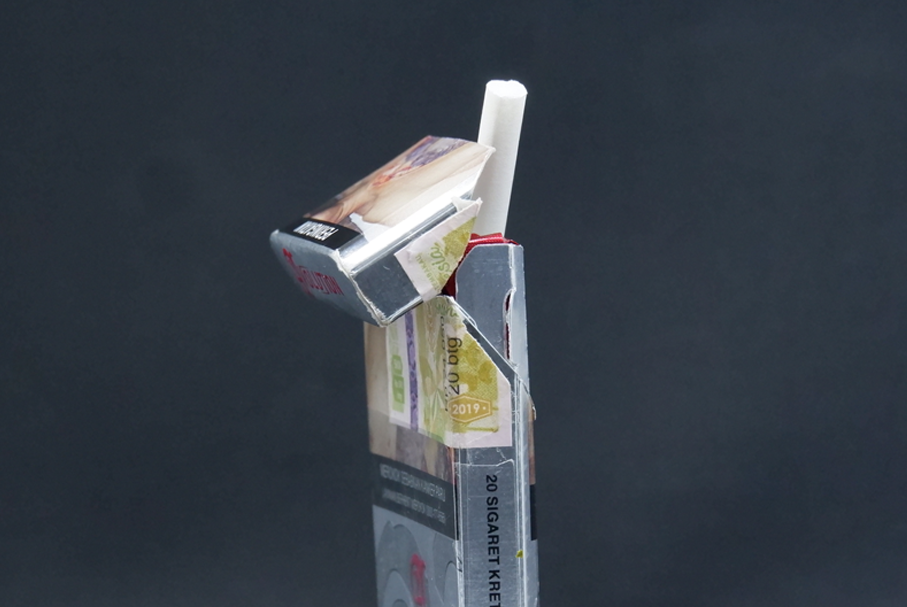Mandatory Allocation for Health Programs, 10% Cigarette Tax Applies This Year
Tuesday, 09 January 2024

Cigarette tax collection will take effect on 1 January 2024, as stipulated in Minister of Finance Regulation (PMK) Number 143 of 2023.
The regulation on Procedures for Collecting, Withholding, and Paying Cigarette Tax states that the cigarette tax rate is set at 10% of the cigarette excise value and is collected by the Director of Customs and Excise (DGCE).
This provision is a derivative of several legal umbrellas related. First, Law (UU) Number 1 of 2020 on Financial Relations between the Central Government and Regional Governments (HKPD). Second, Government Regulation (PP) Number 82 of 2018 on Health Insurance which has been amended by PP Number 64 of 2020.
Health Program Allocation
In the HKPD Law, the cigarette tax paid to the central government must be distributed to each local government according to its proportion.
Furthermore, each local government, whether provincial or regency/municipality that receives an allocation of the cigarette tax, is obliged to allocate its use for health insurance programs. The allocation is set at 75% of 50% of the cigarette tax received or the equivalent of 37.5%.
Suppose the obligation to use the allocation for health programs is not carried out. In that case, the provincial or district/city government will be subject to a sanction of cutting the cigarette tax allocation by 37.5% of the revenue plan or revenue realization.
Cigarette Tax Payment Mechanism
Cigarette tax must be paid by cigarette taxpayers, namely companies that produce and import cigarettes with a license, in the form of excise goods operators.
The repayment is made by filling out and sending a Cigarette Tax Notification Letter (SPRR) to the DGCE through the application system provided.
Furthermore, DGCE will conduct research before deciding whether the data contained in the SPPR is appropriate or not. The research is conducted on the information contained in the SPPR, including:
- Name of the entrepreneur or his/her proxy
- Company name and address
- Excise Goods Operator Identification Number (NPPBKC)
- Total amount of excise tax
- The number and date of the application for ordering excise tapes or CK-1
- Cigarette tax calculation
If the data is deemed appropriate, it will proceed to the excise tax order service process. However, if not, for example, because the cigarette tax is underpaid or has not been paid, DGCE will postpone the excise tape service until the taxpayer makes the payment.
Cigarette tax payments are made using the billing code through services or channels provided by collecting agents or parties appointed by the State General Treasurer (BUN), to receive cigarette tax payments, including:
- Perception banks
- Perception post
- Foreign exchange perception bank
- Other perception institutions
- Other foreign exchange institutions
If the repayment is made worldwide, the payment is made on the same date as the SPPR or CK-1 date. Meanwhile, if the taxpayer gets a postponement facility, the payment is made no later than the due date of the postponement CK-1.
Cigarette Tax Restitution
If there is an overpayment of cigarette tax, the taxpayer has the right to apply for a refund of the overpayment or restitution to the DGCE. However, the restitution request can be submitted based on these three things.
First, there is an overpayment of cigarette tax due to miscalculation. Second, there is a refund of cigarette excise tax as evidenced by the destruction of the excise tax tape or there is evidence of the return of the excise tax tape within 12 months of its issuance.
The third basis of restitution can be made if the cigarette tax paid is not or should not be payable.
It should be noted that the DGCE will first conduct research on the submitted excise tax refund application.
If the research result states that the amount of overpayment claimed by the taxpayer is appropriate, DGCE will request the State Treasury Office (KPPN) to issue a Certificate of Bookkeeping (SKTB) attached state revenue receipt.
Meanwhile, if the research result states that the application is not appropriate, the cigarette tax restitution request will be rejected. (ASP/KEN)


